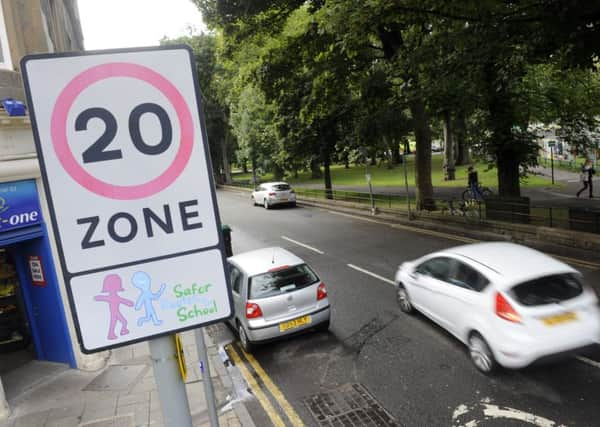Public yet to be convinced by 20mph speed limits – leader comment


The setting of a speed limit is, to a large extent, about finding the right balance between safety and the smooth flow of traffic.
If safety is taken to a ridiculous degree – for example, by reinstating the Locomotive Acts of the 1860s, which imposed speed limits of 4mph in the countryside (2mph in cities) and required someone to walk in front of vehicles with a red flag – then the fatal accident rate could probably be reduced to zero.
Advertisement
Hide AdAdvertisement
Hide AdHowever, most reasonable people accept that life cannot be entirely risk-free and motor vehicles should be able to travel considerably faster than walking pace. Otherwise, what’s the point?
So the current debate over whether the normal urban speed limit should be 20mph or 30mph is a matter of degree, rather than principle. Where should the compromise between safety and speed be made?
The Royal Society for the Prevention of Accidents, which supports 20mph, points to research saying that 45 per cent of pedestrians killed in accidents with cars and vans died when the impact speed was less than 30mph, while just five per cent of deaths occurred below 20mph.
However, other research found that an astonishing 81 per cent of car drivers break the speed limit on 20mph roads, compared to 53 per cent on 30mph roads, which gives a fairly good indication of what most motorists think about the lower limit.
As we report today, Transport Secretary Michael Matheson said in a letter to the charity Sustrans: “Changing a speed limit does not guarantee that actual vehicle speeds will change. The guidance on setting all speed limits is clear that they should be reasonable and consistent if they are to be credible to road users and obeyed as a result.”
If a law is introduced, but not obeyed by a large number of people, then it risks being held in general contempt and simply ignored.
The laws requiring the wearing of seatbelts and banning smoking in pubs were initially controversial, but were successful because they quickly became accepted as people realised they were actually beneficial.
The signs from places such as Edinburgh where 20mph limits have been introduced are that there is considerable resistance to the idea. Police Scotland has also pointed out that enforcing this limit cannot be a priority for the force.
A 20mph speed limit on some city streets may be appropriate, but it is clear the public still needs to be convinced.
